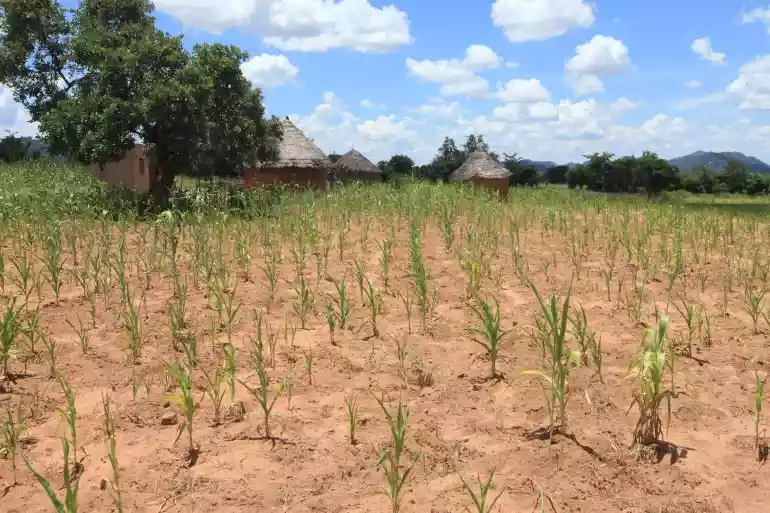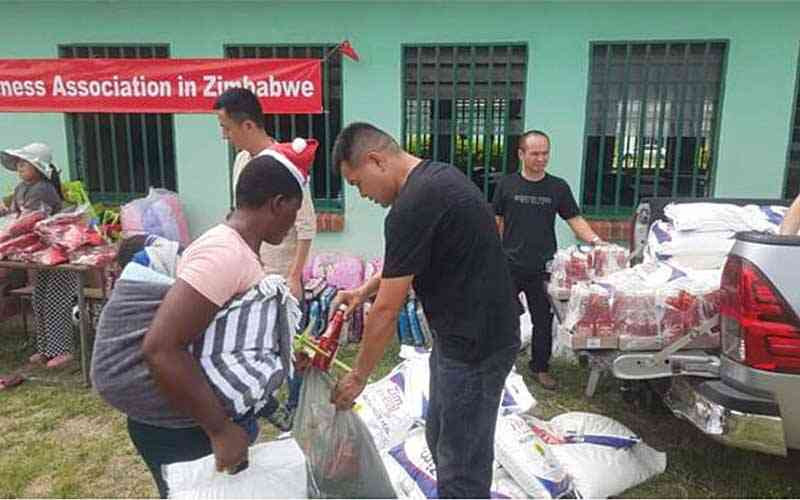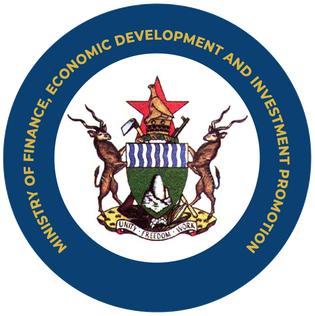
PRESIDENT Emmerson Mnangagwa’s address at the South Korea-Africa summit in Seoul City in June highlighted Zimbabwe’s keenness to partner South Korea.
This emphasis on collaboration comes hard on the heels of his nation’s address on April 3, 2024, where he declared the 2023–24 agricultural season a disaster, largely attributed to the El Niño phenomenon, leaving over 2,7 million people food insecure and the country needing US$3 billion to cover the gap.
While El Niño undoubtedly played a role in Zimbabwe’s drought crisis, I argue that agricultural policies implemented since the turn of the millennium have also significantly impacted the sector.
These policies, including the largely publicised land reform programme and various iterations of agricultural programmes the Command Agriculture, Pfumvudza/Intwasa, Presidential Goat programmes, etc have been hampered by a lack of transparency and allegations of corruption, theft, political grandstanding and absence of proper planning, implementation and evaluation, ultimately dwarfing their perceived benefits.
To this end, the skewed implementation of these agricultural programmes has weakened the agricultural sector’s ability to build resilience to climate change, making the drought crisis a culmination of policy shortcomings.
In this context, Mnangagwa’s call to learn from South Korea’s agricultural expertise at the South Korea-Africa Summit appears well-founded.
The El Niño phenomenon has exposed the limitations of Zimbabwe’s current policies, making strategic partnerships crucial for future agricultural success.
It is common cause that any investigation into contemporary Zimbabwe’s food crisis should start with the chaotic land reform programme — a programme that is viewed to has pushed Zimbabwe from a “breadbasket” status to a “basket case”.
- NoViolet Bulawayo’s new novel is an instant Zimbabwean classic
- Jah Prayzah, Zanu PF rekindles ‘lost love’
- Bank workers appeal to Ncube for tax relief
- Indosakusa marks 21-year anniversary milestone
Keep Reading
The programme, which was aimed at reducing household poverty through giving land to smallholders, led to a food crisis as productive commercial farms were reduced to small holdings, and in some cases, the political elite took more farms than they could utilise and later abandoned them.
The once productive farms that supplied national granaries with corn, wheat and other farm produce are now producing hay and logs. What a tragedy!
The programme was harshly implemented without corresponding institutional mechanisms and proper financing opportunities for the newly-resettled farmers. Thus, both the programme and the farmers were set to fail and fail they did.
The opaqueness, corruption and theft that dominated this programme were exported to other government agricultural programmes aimed at building climate resilience and enhancing national food security.
The Auditor-General and the Parliament’s Public Accounts Committee exposed that through the Special Maize Programme, better known as Command Agriculture, the Finance ministry and the Reserve Bank of Zimbabwe superintended a murky and illegal process in violation of the country’s laws, including the Appropriation Act, the Constitution of Zimbabwe, and the Public Finance Management Act, through the approval of Treasury Bills worth US$1,6 billion ostensibly to finance the programme.
Additionally, the US$88 million Presidential Goat Scheme spearheaded by the Lands, Agriculture, Fisheries, Water and Rural Development ministry failed to take off despite money being paid, prejudicing the beneficiaries of goats scheme who needed to build household resilience. This showed a systematic issue: corruption that has torpedoed the potential benefits of agricultural policies, eroding climate resilience efforts.
While Zimbabwe’s economy has moved from being agriculture-based to being extractive, it is important to note that evidence shows that investing in agriculture is more rewarding in reducing poverty than investing in other sectors.
Instructively, data from the World Bank show that 80% of marketed agricultural production in Africa comes from smallholders, with 60% being women.
As such, investment in agriculture can be viewed as a means of achieving sustainable development goals, especially that of ending poverty.
Thus, the importance of the agricultural sector, although neglected and entangled in corruption scandals in Zimbabwe, cannot be understated.
I argue that Zimbabwe’s government should invest boldly in its agricultural sector to turbocharge its economy, address poverty levels in rural areas and build the country’s resilience to climate change.
To do so, policymakers ought to invest in formulating and carefully implementing strong policies and corresponding institutional and legal frameworks.
The government should be intentional and deliberate in its approach to addressing contemporary agricultural challenges.
South Korea’s historic experience underscores the importance of the agricultural sector in a developing economy like Zimbabwe.
South Korea successfully implemented its first National Economic Development Plan, which aimed to pursue self-sufficiency in food production, making it a priority on the national agenda.
Apparently, food security is one of the priority areas for Zimbabwe’s economic blueprint, better known as the National Development Strategy 1.
However, what is absent from Zimbabwe and visible in the South Korean experience is the investment in research and development and the use of technologies that increase productivity.
Notably, by and large, South Korea also reveals that success in agricultural processes is driven by the government’s commitment through its policies and practices to build agricultural infrastructure, zero tolerance for corruption and the country’s successful implementation of the agrarian reform, which is apparently seen as strangling meaningful agricultural development in Zimbabwe.
As such, for Zimbabwe to escape the current food crisis, build a climate resilient agricultural sector, the answer resides not in the donor community, but by and large, in the country’s ability to address the issue of land ownership, invest in strong agricultural policies and capacitate corresponding institutions to be geared towards the efficient use of land resources for economic purposes.
- Mbongeni Nhliziyo is a Transparency International Zimbabwe School of Integrity alumni. He has strong research interests in governance, public policy and development. He writes here in his personal capacity.










